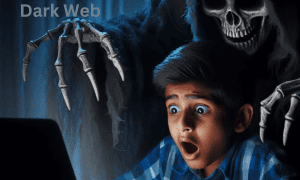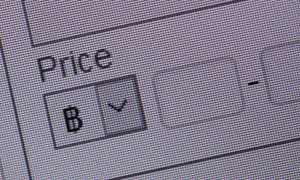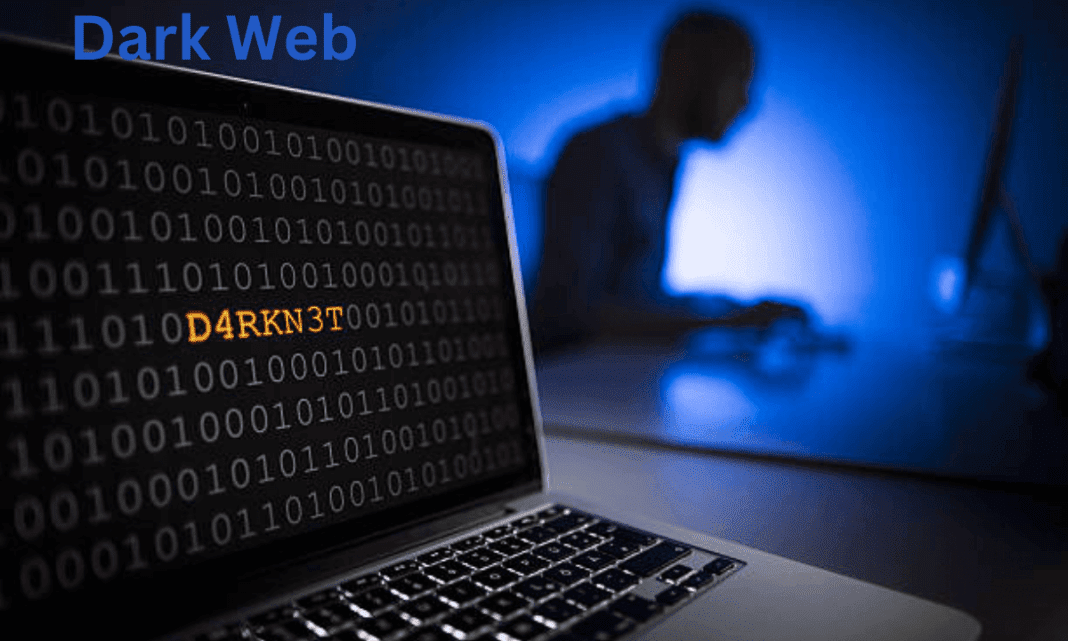The Dark Web’s Harmful Effects on Society

Since the ‘Dark Web’ employs intricate methods to mask a user’s real IP address, tracking the websites a device has accessed becomes quite challenging. The most popular and specialized program for accessing it is known as Tor (The Onion Router). The daily user count for Tor is close to 2.5 million.
Dark web material can be accessed only with software, setups, or authorization on darknets, overlay networks that utilize the Internet.
Describe the Deep Web and the Dark Web. Surface web.
The term “Dark Web.”
The black Web is an anonymous network of websites that only a certain browser may access. With its support, users may remain anonymous and private when interacting with the Internet, which has legal and unlawful uses. It has legitimate and illicit uses; some use it to circumvent government censorship.
What Are the Surface Web,
Millions of web pages, databases, and servers operate on the vast and expansive Internet every second of every day. However, the “visible” Internet, surface web, or open Web, accessible through search engines like Google and Yahoo, is a small portion of the Internet.
Online Space is Known as the surface web.
The “visible” top layer is the open Web, sometimes called the surface web. If we continue to picture the full Web as an iceberg, the open Web would be the part of the Web that is above water. When taken as a whole, these data sets and websites constitute less than 5% of the Internet.
This contains the most popular publicly accessible websites that use conventional web browsers such as Google Chrome, Internet Explorer, and Firefox. Registry operators, like “.com” and “.org,” make websites easily discoverable using prominent search engines.
The “Deep Web.”
The deep Web, which makes up around 90% of all web pages, is underground. Much bigger than the surface web, it is like the underwater portion of an iceberg. The sheer size of this underground network makes it hard to tell how many websites or pages are live at any given moment.
To extend the analogy, powerful search engines are like fishing boats that only “catch” surface web pages. The rest must be available, including scholarly articles, private databases, and illegal material.
What is often known as the dark Web is also a part of this deep Web. Although “deep web” and “dark web” are sometimes used interchangeably in the media, most deep sections are lawful and pose no security risks. Among the most extensive sections of the deep Web are:
- The “database” is a collection of publicly available or privately secured files that cannot be accessed outside the database.
- Intranets allow businesses, schools, and government agencies to securely interact and manage internal processes.
You probably use it daily, but that’s how you reach the deep Web. The “deep web” is the whole Internet that standard search engines cannot index.
Some sites on the deep Web ask search engines not to “crawl” them, while others use passwords or other forms of protection to keep visitors out.
For various reasons, these pages are less prominent without obvious linkages.
The Web’s deeper, more secure portions typically have cleaner, safer “hidden” material. The sites you visit when you bank online, blog pieces under review, and upcoming web page redesigns are all part of the deep Web.
In addition, neither your computer nor your safety is in danger from these. Protecting user information and privacy necessitates keeping most of these pages concealed from the open Web, including:
- Banking, retirement, and other financial accounts
- Messaging platforms and email
- Databases used by private companies
- Protected health information (PHI), such as patient records
- Legal documents
Going further into the dark Web increases the risk of light. Some users may get TV or movie services unavailable in their local locations by navigating deep web sections that evade local restrictions. Still, others delve further, stealing unreleased movies or downloading unlicensed music.
The most dangerous stuff and activities may be found on the shadowy side of the Web. This remote portion of the Internet, known as the “dark web” and accessible only through an anonymous browser, is where you’ll find Tor websites.
Since many parts of the deep Web may still be accessible in standard internet browsers, the ordinary internet user is more concerned about deep web safety than dark web safety since they risk accidentally landing in harmful locations.
This is how people might find themselves on pirate sites, politically extreme forums, or frighteningly violent content by following enough side paths.
The Dark Web


Sites on the dark Web are not part of the regular web index and can only be accessed with certain browser extensions. The dark web is a deep web subset significantly smaller than the surface web. Let’s compare the Internet to an iceberg floating in the ocean. The dark Web represents the bottom of the glacier.
But there’s a hidden part of the Internet called the dark Web, and very few people go there or see it. That is to say, the black Web and everything else hidden under the surface that can be accessed with the correct tools are all part of the deep Web.
The dark Web is a safe sanctuary for anonymous online activity because of its architecture, which consists of several layers:
Web search engines do not index websites. Search engines like Google cannot index or provide results for dark web content.
“Virtual traffic tunnels” run via a randomly constructed network.
Because of its unique registry operator, it is not accessible with standard web browsers. Multiple layers of encryption and firewall protection further conceal it from view on the network.
There is a common misconception that the dark Web is a place where criminals go to buy and sell unlawful products and services through “trading” sites. Nonetheless, this structure has also been utilized by parties with legal standing.
Threats on the deep Web are distinct from those on the dark Web regarding dark web security. While illegal online activity may not be easy to stumble into, it is often far more intense and dangerous when you do manage to find it. The reasons and means people use the dark Web must be investigated before its dangers can be uncovered.
The Best Way to Get into the Dark Web
Once upon a time, only hackers, police, and cybercriminals had access to the dark Web. Nevertheless, with the advent of technologies such as encryption and Tor, an anonymizing browser program, anyone with an inclination may now go black.
The Tor network browser, for “The Onion Routing” project, allows users to view websites that utilize the “.onion” registry operator. This browser is now a service created in the late 1990s by the US Naval Research Laboratory.
The creators of an early version of Tor saw the need to conceal espionage communications due to the Internet’s inherent impersonality and responded accordingly. The modern web browser is based on a recycled framework made public after some time. It is free to download, and anyone may do it.
Tor is similar to a web browser, such as Firefox or Chrome. Tor avoids the shortest route to the deep Web by using a network of encrypted servers called “nodes.” Users may safely access the deep Web without worrying about their online activities or browsing history being monitored.
You won’t be able to determine the hosts or administrators of deep websites since they utilize Tor (or comparable technologies like I2P, the “Invisible Internet Project”) to hide their identities.
Is the Dark Web Against the Law?


The short answer is no; going to the dark Web is not against the law. There are legitimate applications that lend credence to the “dark web.” Users on the dark Web can seek three obvious advantages:
Privacy for Users
It is almost impossible to track services and websites
Capacity to engage in unlawful activities for suppliers and users alike:
People who fear safety would rather not expose their online identities, which is why the dark Web has become so popular. Whistleblowers, political dissidents, victims of abuse and persecution, and others have used these secret sites often. Naturally, though, these advantages may be readily extended to individuals who blatantly violate the law in other ways.
According to this perspective, the legitimacy of the dark Web depends on your actions as a user. You may veer from legal bounds for several reasons crucial to preserving liberty. Some may resort to unlawful means to ensure the safety of others. Let’s break down these ideas using the “dark web browser” and websites as examples.
Is it a Crime to Use Tor?
Regarding software, using Tor or another anonymous browser is not technically prohibited. Although they claim to be, these so-called “dark web” browsers have no ties to the dark Web. These days, many people use Tor to hide their online identities as they explore the dark Web and the public Internet.
Today, more than ever, people value the Tor browser’s anonymity. Both governmental agencies and corporations engage in the illegal practice of monitoring internet users’ activities.
Some people have little option but to hide their web browsing history from governments and ISPs, while others want to keep this information private. (VPNs) and Tor clients are sometimes the only way for users in nations with stringent user and access rules to access even public websites.
Regardless of how lawful Tor is, you may still do things inside it that could get you in trouble with the law. It would be easy to use Tor to steal intellectual property from the dark Web, distribute unauthorized pornographic material, or even commit cyberterrorism. Sticking to the letter of the law will only happen if you use a lawful browser.
Is it Against the Law to Access and Utilize the Dark Web?


The black Web is a little more murky when it comes to networks. When you use the dark Web, it’s typically because you want to do something secretive that the public wouldn’t know about.
Protesters who speak out against the government or other powerful interests may fear reprisal if their names are revealed. People who have been victims of abuse may feel a strong desire to keep their perpetrators out of any discussions on the incident. An action is considered unlawful if the authorities to which you are subject have declared it such.
However, anonymity has a downside since thieves and harmful hackers also like to stay hidden. People who engage in hacking and trafficking, for instance, do so with full knowledge that their actions may lead to incrimination.
For this reason, they resort to these behaviors on the dark Web to remain hidden.
Browsing these spaces is not unlawful, but it could cause you problems. The dark Web is not inherently criminal but is home to several underground communities engaged in illicit activities. In the hands of an unskilled orchnally proficient user, it serves optional hazards. What, therefore, is the purpose of the dark Web when it comes to illicit pursuits?
Risks and Concerns on the Dark Web
Dangers lurking on the shadow web
You may be asking, “Is the dark web dangerous to use?” if you’re thinking about utilizing the dark Web for simple privacy reasons. To be honest, it’s only sometimes a safe place to be. Here are a few typical dangers you could encounter while online:
Trojan Software
Malicious software (malware) is alive and well on the dark Web. It is frequently provided on some portals to provide cybercriminals with the means to launch assaults. But much as it does on the regular Web, it lurks all over the dark Web, waiting to infect naive victims.
Websites on the regular online adhere to social contracts that keep users safe; the dark Web does not. It follows that consumers are at risk of persistently encountering viruses such as:
Devices that Record Keystrokes
- Botnet viruses
- Cryptovirus Threat
- Malware that targets phishing accounts
If you browse dark websites, you risk being targeted for hacking and other cybercrime. Endpoint security systems can detect the majority of malware infestations.
Even when you’re not connected to the Internet, you’re still vulnerable to its dangers. Even with Tor and the dark Web’s architecture, anonymity could be better. If someone goes deep enough, your internet activities can lead them to your identity.
Government Oversight
The risk of becoming a government target for accessing a dark website is becoming more apparent as numerous Tor-based sites are being taken over by police agencies throughout the world.
- Authorities have used the Silk Road and similar underground drug markets to conduct surveillance in the past. Police have identified users, customers, and passers-by, using specialized software to monitor and record their online behavior.
- Someone might be watching you even if you never buy anything; this could lead to incrimination for other things you do in the future.
- If you allow an infiltration, they may also start watching you for other things. In certain nations, circumventing official regulations to study alternative political beliefs is punishable by imprisonment.
- This is precisely why China employs its so-called “Great Firewall” to restrict access to well-known websites. Visiting this content can result in being added to a watchlist or being singled out for an imminent prison sentence.
Scams
Some purported services, like professional “hitmen,” could be nothing more than frauds aimed at taking advantage of unsuspecting victims.
- Among the various illicit services allegedly offered on the dark Web are sex and weapon trafficking, target killings, and more.
- This little corner of the Web is home to some very dangerous dangers. Some people could try to scam people out of money by capitalizing on the dark Web’s reputation.
- Some dark web users may also try to extort you by stealing your identity or personal details through phishing schemes.
Climate Change is a Fraud
Prevention of Dark Web Exploitation for End Users


Everyone who uses the Internet—from businesses to parents—should take measures to avoid the dark Web and protect their personal information and data.
- Watching for identity theft is essential for protecting your personal data.
- The Internet makes it possible to profit from distributing personal data. The dark Web is a constant source of information such as passwords, real addresses, bank account details, and social security numbers.
- You might already know that bad guys can use them to steal money, damage your credit, and get into all your accounts. Reputational harm due to social fraud is another consequence of data breaches.
- It is equally important to have antivirus and antimalware defenses to keep harmful actors from taking advantage of you. Malware steals users’ personal information from the dark Web.
- Attackers may use tools like keyloggers to access your system and steal your data anywhere you go on the Web. Comprehensive endpoint security suites like Kaspersky Security Cloud offer antivirus protection and identity monitoring.
Barriers for People With Disabilities
Dark Web Dangers?
Anyone considering using the dark Web for privacy reasons. Should consider whether it is safe. Sure, it’s only sometimes a haven for people, fraught with danger.
Among the dangers are:
People should use extreme caution when navigating the dark Web, as it is rife with scams.
- Many dark web websites are intentionally designed to steal users’ personal information or money, making scams a typical occurrence on this platform.
- Scammers pose as professional hitmen to take advantage of unsuspecting victims.
- Malicious software, often known as malware, is prevalent on the dark Web. Some viruses, such as ransomware, can infect users. This area has a high frequency of extortion incidents.
- Malware that operates as a botnet generates massive amounts of bot-related traffic and uses hidden services immune to censorship as its command and control mechanism.
- Trafficking in humans, the sale of firearms, and other illicit activities abound on the dark Web.
How can one’s life be affected by the dark Web?
Since we have covered the dark Web, other terminology related to the Internet’s architecture, and the dangers of utilizing it, let’s examine its effects on our daily lives. Exclusive to certain browsers, the dark Web is considered the shadowy underbelly of the deep Web.
In people’s lives, it has both good and bad effects.
Sora of Open AI: An Unexpected Achievement
Detrimental Effect


One must be aware of the potential dangers that lurk in the dark Web and exercise caution when navigating there.
- Organ transplantation has recently begun to climb the dark Web’s graph, adding to the various illicit acts that have previously been discussed. Approximately 10% of those on the waiting list either pass away or get seriously ill each year, according to the statistics.
- The crypto market covers the kidney transplant sector to 5 to 10%. Worryingly, the price of any transplantable on the dark Web has doubled between 2008 and 2015.
- Transplant doctors are responsible for educating the public about the risks posed by the dark Web.
- Threats to websites from the dark Web are another major consequence.
- These internet assaults can affect any website or platform. It has come to light that hackers have stolen almost 16 million medical equipment from different healthcare companies. The patient’s medical records were among the many pieces of data exchanged on the dark Web.
- Medical professionals must understand the risks associated with the dark Web. Any electronic medical gadget might potentially be compromised. It may be an insulin pump or a ventilator. The dark Web has many harmful effects, one of which is the trafficking of children.
- The dark Web has become a haven for online sex offenders in several affluent nations, perhaps fueled by the ease of internet access.
- For Bitcoin and online live rooms known as red rooms, clients are requesting the torture and murder of women.
- Although the dark Web was originally designed to let government spies communicate anonymously, it has now transformed into a sanctuary for those with malicious intentions.
- Due to its architecture and design, the dark Web perfectly suits individuals who wish to carry out illicit and malevolent actions. Furthermore, since the dark web masks the identities of everyone using the network, criminals may easily get away with their crimes.
- Even though several regulations have been passed to encourage cyber-security, criminals and their illicit activities can still find a home on the dark Web.
- To manage and monitor the black Web, law enforcement must collaborate with other parties, increase their presence there, and provide more resources for cybersecurity.
- It is easier to monitor illegal activity when several law enforcement organizations are present on the dark Web. This study examines what draws criminals to the dark Web and why and suggests ways to make it less appealing.
- Law enforcement agencies can gain an advantage in their fight against cybercriminals operating on the dark Web if they begin breaking into criminal networks and establishing operations there.
I really appreciate you reading my work and taking the time out of your day to do so. I’ve linked a few more articles if you enjoy this one. You can subscribe to my newsletter if you want to be updated on my new postings. I wish you a fantastic day! I appreciate you taking the time to visit my site.




